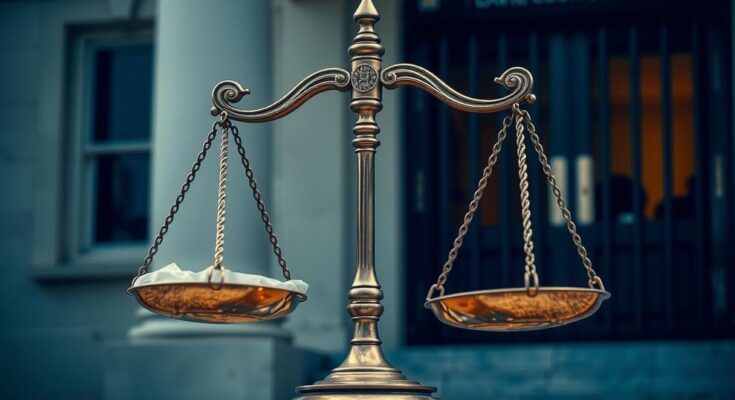Two Kurdish clerics, Hossein Khosravi and Hiwa Nouri, were released on bail after facing serious charges of armed insurrection. Soleyman Adhami remains detained, with his case referred to the Special Clerical Court. The men suffered through torture and forced confessions during their detention, highlighting the troubling treatment of Kurdish religious figures in Iran.
In a significant development, two Kurdish Sunni clerics, Hossein Khosravi and Hiwa Nouri, have regained their freedom after posting a hefty bail of 20 billion rials, nearing $30,000. Both were incarcerated in Orumiyeh Central Prison due to accusations of “armed insurrection.” Meanwhile, their fellow cleric, Soleyman Adhami, remains in detention, with his case now under the jurisdiction of the Special Clerical Court in Tabriz, creating a heavier veil of uncertainty over his fate. The Kurdistan Human Rights Network (KHRN) sheds light on the harrowing conditions these religious figures faced prior to their release. Khosravi, an imam from a village near Baneh, and Nouri, an active religious figure, endured three months of grueling interrogations and torturous treatments aimed at extracting coerced confessions before their transfer to the prison in Orumiyeh. The initial charges against the trio included serious allegations such as “armed insurrection,” “membership in the terrorist group Jamaat Ansar al-Sunnah,” and “propaganda against the state.” Following their arrests by Ministry of Intelligence officers in late January, the cases were first presented to the Islamic Revolutionary Court in Orumiyeh but have since shifted to the clerical judicial system, complicating their prospects for justice.
The context of these events lies within the broader patterns of human rights abuses in Iran, particularly concerning the Kurdish population, which faces systematic discrimination and persecution. The Kurdish Human Rights Network (KHRN) highlights ongoing issues of unlawful detentions and harsh treatment of religious figures and activists, which has raised alarms within the international community. The treatment these clerics received exemplifies a troubling trend of forced confessions and prolonged interrogation practices that violate individual rights and liberties.
The release of Khosravi and Nouri after extensive legal battles offers a glimmer of hope amidst a dark landscape of oppression. However, with Soleyman Adhami still detained and facing charges that could lead to severe consequences, the situation remains precarious for Kurdish clerics in Iran. Observers are left questioning the judiciary’s integrity and the future of religious freedoms in the region, as many continue to endure the shadows of imprisonment for their beliefs.
Original Source: kurdistanhumanrights.org



